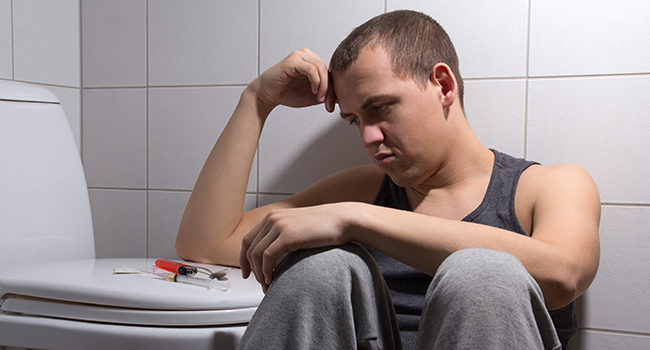You successfully came to a conclusion, that your addiction is no longer going to control your life. You did your research, you did your detox, you even went through an inpatient program in a professional rehabilitation center. You are now an addict in recovery. Consciously knowing all the terrible things drugs did to you, your body, mental state and social life make you feel like you would never, ever go back there. Not while you had something to say about it. And then it comes – a craving, a passing thought, an itch at the back of your skull that you can’t quite scratch. You break, you succumb to the inner voice that reminds you – you’ve done it before, you can get clean again, it’s just one bump after all. And when you have relapsed, back in the ditch with a needle in your arm, provided you are conscious at all, you begin to wonder, what was the mistake that allowed you to relapse. Let’s have a look at some of the most popular mistakes that have been crucial to countless relapses and failed recoveries.
Leaving support behind
It doesn’t matter what it is, a tight-knit group of supportive friends, a 12 step program group or a church group – stick with them. They were there to support you in your first steps and will be there for you long after you have sobered up. There will come a point when a recovering addict will consider himself cured and treated. At that point, these meetings may seem unnecessary, but in truth, they are what got you to the self-assured and confident sober situation you are in right now. Without them, you would never have made it this far. While being confident and proactive in life is nothing but commendable, it’s important not to get overconfident and slip up because you felt that you had outgrown the very support that pushed you through the clouds in the first place.
Firing your counselor
For very similar reasons as the above point, don’t charge into quitting your relationship with your counselor. It is something that should be recommended by him, rather than your own feelings. There will come a time when that will happen, but there is a reason why your own decision-making skills can be put under scrutiny and deemed not to be in your own best interests. Stay safe, stay connected and make that hurdle when both you and your counselor thinks it’s time to move on.
Returning to unwelcome company
Homo Sapiens is a very social creature. An addict is just as human as anyone else and as such usually seek out connections and like-minded individuals to spend time with, socialize and make connections that allow them to score drugs. While being addicted, you probably spent a long time with some of these people, called them friends. They are no longer your friends, or at the very least, they should not be, in order to achieve true recovery. Sounds harsh, but when it’s your literal life on the line, some hard choices have to be made. These people enabled your use, supplied it even, in some cases. Being surrounded by addicts tripping on a drug you once used together is no place to be for a recovering addict. Avoid this situation at all costs.
Falling for a quick relief
Being addicted does a number of things to your psyche and memories. Any recovering addict will tell you – there comes a day when you can literally taste the drug on the tip of your tongue, feel its after-effects or even smell them. You could be on the toilet, working or just watching TV.It can strike at any moment. At that point, the urge and the suppressed need to use comes rushing back to the surface like a shaken soda bottle being opened. It is overwhelming and hard to resist, which makes it all the more important to have a distraction from it as soon as it happens. Call a friend, go for a walk, start a new project at work or engage your mind in other ways. It is all in your mind, after all, nothing more.
These are but a few of the most popular causes and triggers for relapse. Getting to recovery is hard, it is exhausting and mentally challenging, but during the rehabilitation phase, you have support and help from professionals and other recovering addicts. It allows you to focus on your goal and achieve it with relative ease – there are always people around you that will help. When you are no longer an in-patient and return to normal life as a recovering addict, there is no more hand-holding and there will be hard choices to make when there will be no one around you. It’s in these moments we must remind ourselves what we went through and that we have help just a call away. We will continue talking about the pitfalls any recovering addict should avoid, in our next article.
Latest posts by Darren Lockie (see all)
- Cocaine burnout - February 25, 2020
- What is pathological lying? - February 21, 2020
- Ireland’s growing drug problem - January 20, 2020
+66 8 7140 7788









